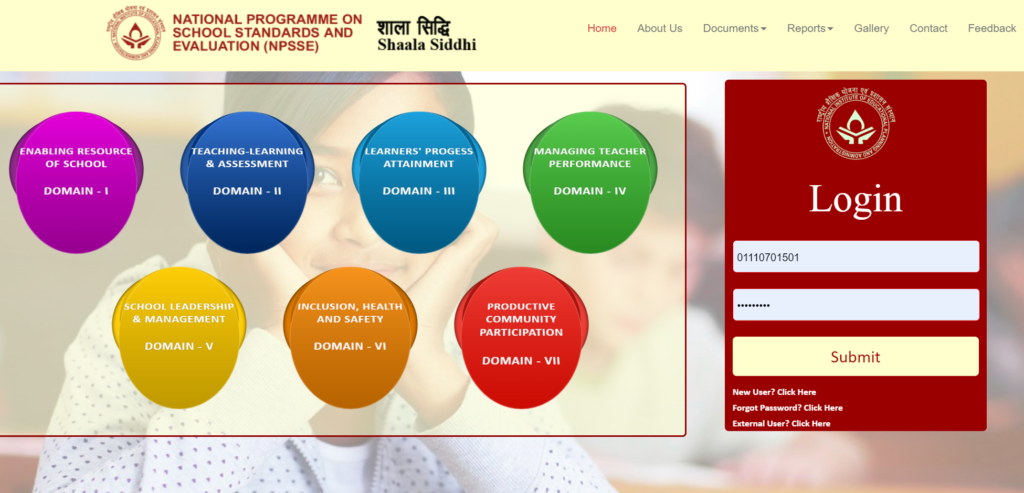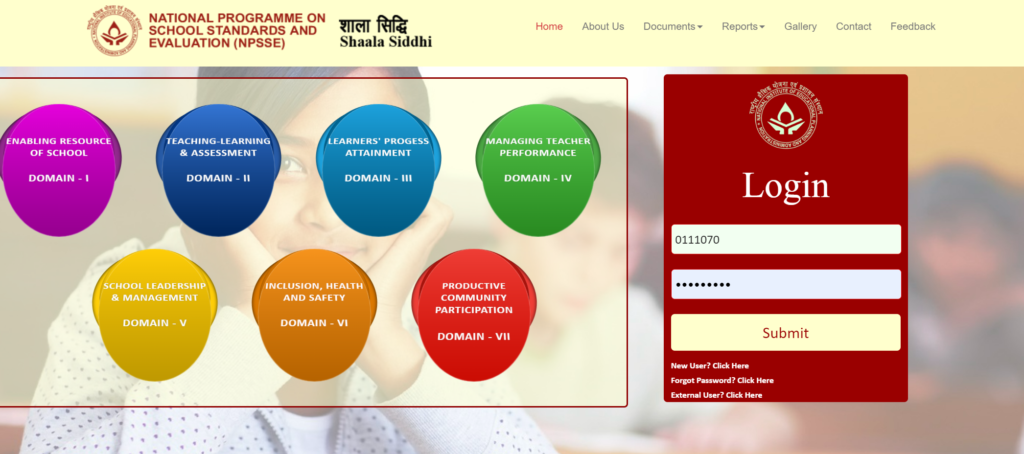Table of Contents
ToggleWhat Is the Teacher Eligibility Test (TET) in India? A Simple Guide
Everything you need to know about India's Teacher Eligibility Test - from structure to preparation strategies

Understanding the Basics: What is TET?
The Teacher Eligibility Test (TET) is a mandatory qualification examination for teachers in India, established under the Right of Children to Free and Compulsory Education (RTE) Act, 2009. Implemented by the National Council for Teacher Education (NCTE), TET serves as a minimum qualification standard to ensure that educators possess the essential knowledge and pedagogical skills necessary for effective teaching.
The test was created to address concerns about educational quality and teacher competency across India's diverse school system. By establishing a uniform benchmark, TET aims to improve teaching standards and ultimately enhance learning outcomes for students nationwide. While planning for your TET preparation, it's worth noting that candidates in Jammu often check for Jammu School Holiday schedules to maximize their study time, especially as exam dates approach.
Why TET Matters: The Supreme Court's Recent Reinforcement
In a significant 2023 ruling, the Supreme Court of India strongly reaffirmed the mandatory nature of TET certification for teachers. The court emphasized that qualifying TET is essential for:
- All new teaching appointments in government and government-aided schools
- In-service teachers seeking promotions
- Existing teachers with more than five years until retirement (they must clear TET within two years)
This judgment has solidified TET's position as non-negotiable for a teaching career in India's formal education sector. The only temporary exemption applies to teachers in minority institutions (religious or linguistic), pending a final Supreme Court decision on the applicability of the RTE Act to these schools.
For teachers in Jammu preparing for the exam, keeping an eye on the Jammu School Holiday calendar can help in planning intensive study sessions without conflicting with work commitments.
TET Structure: Two Levels of Certification
TET consists of two separate examinations designed for different teaching levels:
Paper I: For Primary Teachers (Classes I-V)
This paper assesses candidates on:
- Child Development and Pedagogy
- Language I (often the medium of instruction)
- Language II (choose from selected options)
- Mathematics
- Environmental Studies
Paper II: For Elementary Teachers (Classes VI-VIII)
This paper evaluates knowledge in:
- Child Development and Pedagogy
- Language I and II
- Either Mathematics and Science OR Social Studies/Social Science
Candidates can choose to take one or both papers depending on their career goals. Each test typically consists of 150 multiple-choice questions to be completed within 150 minutes.
Who Needs to Take TET?
1. Aspiring Teachers
If you're looking to begin a teaching career in government or government-aided schools, TET is your first mandatory step. Without passing this examination, you cannot be considered for teaching positions in these institutions.
2. Current Teachers
The Supreme Court's ruling has specific implications for existing teachers:
- Teachers with more than 5 years until retirement: Must clear TET within two years to continue teaching
- Teachers with less than 5 years until retirement: Can continue without TET unless seeking promotion
- All teachers seeking promotion: Must clear TET regardless of years until retirement
During extended breaks, such as those listed in the Jammu School Holiday calendar, many in-service teachers dedicate time to preparing for the TET examination.
The Application Process: How to Apply for TET
Applying for TET involves several key steps:
- Determine which TET you need: Choose between CTET (central level) or your state's TET based on where you want to teach
- Monitor official websites: Regularly check ctet.nic.in for CTET or your state's education department website for state TET notifications
- Complete online registration: Fill out the application form with accurate personal and educational details
- Upload required documents: Typically includes photographs, signatures, and academic certificates
- Pay application fees: Fees vary by category (General, OBC, SC/ST, PWD)
- Download confirmation: Always save and print your application confirmation for future reference
Many applicants in Jammu strategically time their preparation around the Jammu School Holiday period to have uninterrupted study time.
Preparation Strategies for TET Success
Preparing for TET requires a structured approach:
1. Understand the Syllabus and Pattern
Thoroughly review the official syllabus and question pattern for your chosen paper(s). Understanding the exam structure is the foundation of effective preparation.
2. Gather Quality Study Materials
Invest in recommended TET preparation books and NCERT textbooks from classes 1-8. These resources form the core of your study material.
3. Master Pedagogy Concepts
Unlike subject knowledge, pedagogy—the method and practice of teaching—is a specialized area that requires dedicated study. Focus on child development theories, teaching methodologies, and inclusive education concepts.
4. Practice Previous Years' Papers
Solving past examination papers helps you understand question patterns, difficulty levels, and time management requirements.
5. Take Mock Tests
Regular mock tests under timed conditions build speed, accuracy, and exam temperament—all crucial for success.
Teachers in Jammu often coordinate study groups during Jammu School Holiday periods to conduct joint mock tests and discussion sessions.
Special Considerations: The Jammu & Kashmir Context
For aspiring teachers in Jammu and Kashmir, TET follows the same fundamental structure but may have state-specific nuances. The Jammu & Kashmir Teacher Eligibility Test (JK TET) is conducted by the Jammu & Kashmir State Board of School Education.
Prospective applicants should monitor the official JK Education Board website for notifications regarding examination dates, application periods, and any special requirements. Being aware of the Jammu School Holiday schedule can help in planning preparation time effectively, especially for working teachers.
It's worth noting that during extended Jammu School Holiday periods, many educational institutes and coaching centers offer intensive TET preparation programs.
The Future of TET in Indian Education
The Supreme Court's strong reaffirmation of TET's mandatory status signals the examination's continuing importance in India's educational landscape. As the country works toward improving educational standards and learning outcomes, TET serves as a crucial quality control mechanism for its teaching workforce.
"TET represents more than just another examination—it's a quality assurance mechanism that elevates the teaching profession and protects students' right to quality education."
For both aspiring and current teachers, embracing TET as a career necessity rather than a hurdle is the most constructive approach. The examination ultimately aims to strengthen India's education system by ensuring that every teacher meets minimum competency standards—a goal that benefits educators, students, and the nation as a whole.
Conclusion: Your Pathway to a Teaching Career
The Teacher Eligibility Test represents more than just another examination—it's a quality assurance mechanism that elevates the teaching profession and protects students' right to quality education. While preparing for TET requires dedication and effort, it ultimately serves to strengthen both individual teaching careers and India's educational system as a whole.
Whether you're a fresh graduate aspiring to enter the teaching profession or an experienced educator seeking to regularize your position, understanding and preparing for TET is your essential next step. With proper planning, strategic preparation, and awareness of important timelines like the Jammu School Holiday calendar, you can approach this mandatory examination with confidence and success.
Remember that while the Jammu School Holiday schedule might offer convenient preparation windows, consistent study throughout the year remains the true key to mastering the TET examination and advancing your teaching career in India.
TET Exam 2025 - Frequently Asked Questions
Find answers to the most common questions about the Teachers' Eligibility Test
According to the recent Supreme Court ruling, the TET exam is mandatory for:
- All new aspirants seeking teaching appointments in government or government-aided schools
- In-service teachers with more than 5 years until retirement (must pass within 2 years)
- In-service teachers seeking promotion (regardless of years until retirement)
Teachers in minority institutions are currently exempt until the Supreme Court makes a final decision.
CTET (Central Teacher Eligibility Test) is conducted by the Central Board of Secondary Education (CBSE) and is valid for central government schools (like KVS, NVS) and schools under UT administration. It is widely accepted across India.
State TET (STET) is conducted by individual state governments. Qualifying a State TET typically makes you eligible for teaching appointments within that specific state only.
If you have less than 5 years until retirement, you can continue in service until superannuation without qualifying TET. However, if you wish to get a promotion, you must clear the TET exam to be eligible for consideration.
In-service teachers with more than 5 years until retirement who fail to qualify TET within the 2-year deadline may face compulsory retirement. They would be entitled to terminal benefits provided they have put in the qualifying service according to the rules.
Paper I (For Classes I-V):
- Child Development and Pedagogy (30 MCQs)
- Language I (30 MCQs)
- Language II (30 MCQs)
- Mathematics (30 MCQs)
- Environmental Studies (30 MCQs)
Paper II (For Classes VI-VIII):
- Child Development & Pedagogy (30 MCQs)
- Language I & II (30 MCQs each)
- Mathematics and Science (60 MCQs) OR Social Studies/Social Science (60 MCQs)
The application process is primarily online:
- Decide whether you need CTET or your State TET
- Regularly check the official websites (ctet.nic.in for CTET or your state's education portal)
- Complete the online registration form with accurate details
- Upload required documents (photo, signature, certificates)
- Pay the application fee online
- Download and print the confirmation page for your records
Currently, the TET requirement does not apply to minority educational institutions (both religious and linguistic) until a larger Supreme Court bench decides on the applicability of the RTE Act to these institutions. This exemption is temporary and may change based on the final court decision.
To effectively prepare for TET 2025:
- Thoroughly understand the syllabus and exam pattern
- Use standard TET preparation books and NCERT textbooks (Classes 1-8)
- Focus on mastering pedagogy and child development concepts
- Solve previous years' question papers (last 3-5 years)
- Take regular mock tests to improve time management
- Stay updated with any changes in the exam pattern or syllabus
Still have questions?
If you couldn't find the answer to your question about TET 2025, feel free to reach out to us.
Contact Us

